Twain, Mark: Selected Obituaries Read online
Page 7
He was really the chief of our writers, by the only valid test. He could touch the emotional center of more lives than any other.
He was curiously and intimately American. No other author has such a tang of the soil -- such a flavor of the average national mind.
Europeans who complained that we denied Walt Whitman, misunderstood Emerson and admired only those who write in old world fashions should be satisfied, at least, with Mark Twain, and our unwavering taste for him.
He was our very own, and we gathered him to our hearts.
In ages to come, if historians and archaeologists would know the thoughts, the temper, the characteristic psychology of the American of the later nineteenth century he would only need to read "Innocents Abroad," "Tom Sawyer," and "Huckleberry Finn."
Mr. Clemens' books were the transcript of his life. And that life was the kind of life that the average American man of his time has believed in and admired.
He was the man that hated dogmas and philosophies and loved a flash of intellectual light.
He was the man that cared much to get rich, yet will sweat blood to pay his debts. A man of boundless optimism, who has never troubled to understand the great tragedies of nations.
To the superficial view he was merely a humorist -- a humorist of international fame, to be sure -- but just a humorist. But there was far more than jocularity in his writing. If Cervantes "laughed away the chivalry of Spain," Mark Twain laughed away a hundred silly foibles of his somewhat too ebullient American friends and admirers.
He had, too, that greatest of all elements in the humorist, the power of pathos. With the twist of a few words he could lift the applauding hand to dash away a tear. And often, just between the laugh and the cry, there was a place where he drove home a truth in a way that no philosopher or moralizing theorist could hope to equal.
He portrayed the life of the lands he knew and loved in his youth -- the wide, unfettered lands of the Mississippi and the farthest West -- in a way to make that life appreciated and loved around the world. Foreign critics likened him to Le Sage and gave him an even prouder place in the temple of fame.
Sham disgusted Mark Twain, but he did not attack it with fierce intensity. He merely made it ridiculous, and so banished it. He set men to laughing at their own folly and brought them unconsciously to the paths of common sense. He would have chuckled had anyone called him a great reformer with a serious mission in life, yet in his graceful way he worked out reform after reform in manners and customs, and would not pose for applause.
He made his place as a man as well as an author, and he gave to the youth of the land an example of rugged honesty well worth their emulation. When financial disaster whelmed his publishing house it would have been easy for him to have evaded his debts and escaped his creditors. But he was not run in that sort of mold. Like Walter Scott before him, and our own William T. Coleman in a narrower field, he buckled down to work, tossed away all legal technicalities and paid off every dollar of his debts so he could face the world with a clear eye, even if in a threadbare coat. And fortune came to him again as a reward for his honest toil, so his later years were spent in comparitive ease and affluence.
In his home life he was genial and in his friendships a true comrade. His hand was ready to help those in need, and his optimism was an inspiration for all who yearned for faith to see through the clouds of to-day the sunshine of tomorrow. Ever the friend and counselor of the children, he got from his little friends the insight into their lives that enabled him to write two books that, had he written nothing else, would have made his name immortal.
California and Nevada are especially proud and unusually fond of this great hearted gentleman; for it was in this far West that he began his career and found his first inspiration. Many will take down the well-thumbed volumes from the shelves and go over again lovingly the passages that made Samuel L. Clemens a fireside friend and a boon companion of the men and women, cultured or homely, in all the Western land.
* * *
Kansas City Star Obituary Notice
MARK TWAIN, HUMANIST
From The Kansas City Star
22 April 1910
[Anonymous]
The news of Mark Twain's death will bring, to an extraordinary degree, a sense of personal loss to millions of his countrymen. For his writings, grotesque, humorous, serious, always revealed the vivid personality behind them. No other man of his time was so well known to the public in all his moods. Occasionally you find someone -- Alexander Butts of The Star was a conspicuous example in Kansas City -- who is so broadly human and has such an intense interest in every side of life that instinctively you feel acquainted after the briefest sort of meeting. Mark Twain was a man of this class. To him, as to the ancient philosopher, nothing human was foreign.
The great inventor, the great statesman, the great writer, is the man who above all his fellows sees the importance of the obvious. His achievements seem so simple that people say, "Why didn't I think of that?" Theodore Roosevelt has been constantly charged with uttering platitudes. Louis Blanc complained that when Thiers spoke every fool in France exclaimed, "Why, that's just what I have been thinking!" In this universal human quality was the power of Mark Twain. He was much more than a humorist. He was a humanist. His writings were constantly illumined by flashes of the keenest insight into human nature. He knew what all of us feel and think, but what we are deterred from various reasons from saying. Consider, for instance, the characterization of the old fashioned Sunday which he imputed to Adam in his Diary":
Sunday -- pulled through.
Which was the way all young people of a generation ago felt, but didn't say. His "Connecticut Yankee in King Arthurs's Court," "Tom Sawyer," "Pudd'nhead Wilson," and his travel books abound in observations of this sort. When he wrote of the Congo atrocities in a magazine article a few years ago he adopted the expedient of stripping King Leopold and standing him in front of a mirror to reflect on the futility of existence -- for after all a sovereign was only a bandy-legged, scrawny-armed creature, with nothing to distinguish him from the meanest of his subjects when once the trappings of royalty were removed.
After the death of a daughter a dozen years ago Mr. Clemens wrote a moving bit of verse for one of the magazines. An editorial comment on it was printed in The Star and a copy of the paper sent him. His reply was so characteristic that it is worth printing:
I suppose we are all poets when we are under the stress of deep feeling, and that when the stress comes often we devote ourselves to poetry instead of prose, but are not moved to this when intervals of years supervene between the powerful impulses. I realize that my intervals are of the widest, and that consequently I am distinctly condemned to prose. Still, I am satisfied, for I was born indolent, and even the indolent can dig prose and get recreation and entertainment out of it.
Always beneath the humor was the deep feeling that belongs to the rich personality. Indeed, with Mark Twain, his humor was little more than the evidence of his sense of values. He had suffered deeply, but he never lost his sense of proportion and he found life worthwhile up to the very beginning of the end.
* * *
Hartford Courant Obituary Notice
MARK TWAIN.
From The Hartford Courant
22 April 1910
[Anonymous]
Mark Twain did not come to Hartford to live until he was nearly forty years old and he lived here only about twenty years, spending a good deal of those years abroad; and yet we of Hartford think of him always as a Hartford man, though in fact he was a man of all the world. No other citizen of the United States, not General Grant nor Theodore Roosevelt, was more universally known and no other American author was ever so generally read. We of Hartford base our claim to him on the fact that he identified himself with this community as he did with no other, and on the other and still more welcome fact that here he spent the happiest and the most useful of his nearly four score years. Although he made his home for some time in New Y
ork and later settled down in Redding, the feeling has never died out here that he belonged to Hartford, and this has been intensified by the fact that wherever any Hartford traveler went the first question asked of him was whether he knew Mark Twain.
The man was original in everything, not least in insisting on being referred to as Mark Twain and not as Mr. Clemens. The essence of wit is said by those who undertake to analyze it to be the unexpected, and it was the unexpected that Mark Twain was always doing, even to building a house with its kitchen to the street and the bricks laid at angles, and his humor was inborn and inevitable; it was of the man himself. Like others of literary fame, he was slow in being discovered, but, once found out, he among all our distinctive humorists lasted through. His vein was never worked out. From the publication of the "Jumping Frog" he was a man of note, and as we have said already, for many years he was the most universally read of the authors of his day or any other day.
He enjoyed this as any author would, and he enjoyed it so much that it stood in the way very probably of better work from his wonderful brain and heart. If we are not mistaken, the readers of this paragraph will generally agree that his finest book was the "Prince and Pauper," but it sold the least, and he has been quoted as giving that fact as his reason for not following that line any further. If it sold the least, it was presumably desired by the fewest number of people. It would be difficult to determine his most popular work, but a first guess would name the "Innocents Abroad," though you can go on from this to a dozen others and smile as each title comes to mind. How entertaining they were, and how keen he was in his knowledge of human nature!
But with all that he wrote it was true of him, as it was of his old-time associate here, Mr. Warner, that in private conversation at the dinner table, about the billiard table, at club meetings and every-day accidental meetings, his delightful, spontaneous outpourings were more delicious than anything he wrote; they were said and forgotten for lack of a Boswell. Mark Twain enjoyed his success from all points of view. The money that he made was mighty welcome to a man who had known poverty down to the hunger line, but much of the pleasure of his wealth was in the opportunity it gave him for helping others; his charity was broad and abundant. He was singularly companionable and his friends were among those whose friendship was a treasure. In his hospitable home he entertained for years almost everybody of literary prominence in the country, native or passing traveler. But, with all his fame, he was democratic through and through. He would receive a friend's call in the morning as he lay in bed smoking, for he usually smoked several cigars before getting up, and he would go down town without a hat and in his slippers and dressing gown. He was a world celebrity and yet as approachable and easy as the least known among those he passed on the street.
Here he came and went day by day, and we all felt that he belonged to us; here his family grew up, here his best work was done, here many of his choicest friendships were formed, and after he left here his troubles began. The first thought in writing of Mark Twain is to quote one after another of his whimsical and philosophical sayings and anecdotes. But there is something about his last days that forbids all that. The lights went out for him before life did. His wife died abroad; two of his daughters died tragic deaths. He himself fell sick in far Bermuda, and came back to an empty home to die. It is all so far from the spirit of his earlier years -- from the time of his twinkling eye and contagious smile and hearty laugh -- that one can only say "The pity of it, the pity of it!" He is gone now. He brightened life in that earlier, happier time, for a lot of us; he will continue to brighten life as long as people know how to read.
* * *
San Francisco Call Obituary Notice
America Mourns for Mark Twain
From The San Francisco Call
23 April 1910
[Anonymous]
MARK TWAIN -- to call him by the name held in affectionate regard by all Americans -- was a genuine product of the west and more particularly of the mining population of the Pacific slope. The broad, liberal spirit of humanity characteristic of "the early days" of California and Nevada found at the same time humorous and philosophical expression in his works. Nothing that was human was alien to his spirit and temperament. Although he pricked the follies of the time, his humor carried no sting and left no heart burnings.
Mr. Clemens was easily the premier of the illustrious school of California humorists and writers of fiction that includes Bret Harte, Samuel L. Clemens, Ambrose Bierce and others of less note. He may be said to have learned his trade in the newspaper offices of San Francisco and Virginia City.
It is an interesting and suggestive fact that California alone, of all the states, has produced a considerable body of literature racy of the soil. Other commonwealths and communities on this continent have produced writers of poetry, fiction and humor, but their product might have happened anywhere and is for the most part not rooted in the soil.
Mark Twain was even more philosopher than humorist. His work is everywhere inspired by a hatred of shams and he took a real pleasure in exposing the solemn humbug. No man in America has contributed more to the sane outlook upon life.
* * *
Morning Star Obituary Notice
MARK TWAIN, HUMANITARIAN.
From The (Wilmington, NC) Morning Star
22 April 1910
[Anonymous]
Mark Twain is dead, and the world will mourn him. With a style which made free use of colloquialism, which depended for effect largely upon American points of view, naturally incomprehensible to other peoples, he yet combined the spirit of humor, which is the gift of the heart, in a vehicle of charity making universal appeal.
There was and can be but one Mark Twain. He was of that select company which could bear the designation "unique." He made his own art out of his own personality. He left no "school," because what he was, he grew. Despite his later artistry and workmanship, it may be said truthfully that he acquired little. He was what he was because he was born so. He was a gift to humanity, for which all peoples are the better.
We do not think that there is any room for "criticism" of Twain and his works. He made his own standards, and exerted his own appeal. He was found good and wholesome and uplifting. In all his frolicsome humor, underlying all his fantasies, there was a strain of philosophy, a hint of satire, and a suggestion of faith that made for the discerning both sermon and poem. More than any other writer he was the apostle of the good in that of everyday, of the need in the midst of misery to smile, and of the capacity in misfortune to discover a laugh. He has left behind him a tonic without despression, the record of a brave heart and an individuality innate with love.
How many of us feel that we know Mark Twain! That what he wrote was written for us, with the intimate frankness of a friend talking over a cigar! In some way his work leaves that impression of confidence possible only to the tete a tete. It is this fact that makes his life of struggle, of heartache and sorrow, all the more pitiful because through it all he preserved his gift of friendship for the world, and poured out, ever fresh, the goodness of a heart that nothing could embitter.
It is more than a humorist who has passed. The world is poorer for the loss of one of its humanities.
* * *
Harper's Weekly Obituary Notice
Mark Twain
From Harper's Weekly
30 April 1910
[Unsigned; probably George Harvey]
There is an old man in Russia who is a very great man of letters. Last week it was a matter for discussion whether the greatest living writer belonged to Russia or the United States. This week it will be conceded that that distinction belongs to Russia, for MARK TWAIN is dead.
He had the great advantage of living his life fully out. Not only his years, but his energies were prolonged, until we may feel that he pretty well worked out what was in him. There will be few to question that he was the greatest American writer of his generation. What may be discussed is whether we have ever had his eq
ual. We have had no one at all like him. If we must compare, we consider HAWTHORNE and WHITMAN. There is nobody else to put in the scales with MARK TWAIN.
It may be a platitude to say that he was a great writer because he was born with the necessary gifts. No one not so born ever became great in letters. What is interesting is that powers so remarkable should have been packed into the frame of a child born in a obscure village in Missouri, and should have developed in a life entirely dissociated from what we are used to think of as literary influences. From the start he went to school to life; learned boys first, then men, and books at his convenience. When boys who have what are called "advantages" are studying Latin grammar, MARK was studying Tom Sawyer, Huck Finn, and the Mississippi River. He learned them, and in due time handed them down to be the heritage of American boys, and indeed of all American readers. That is his great achievement, that he grasped a great mindful of American life, rough, joyous, and picturesque, and put it where it must stay, vital and permanent, but convenient for examination. There is no sign yet of a time when it will cease to be examined by crowds of searchers rejoicing in what they have found.
He was irreverent as RABELAIS was irreverent. He never revered shams, and since the sham and the true are much mixed up in this world, he scared timid folk at times because of his handling of the sham part of things that had truth in them. Respectability never got a gyve on him, and yet in his essence he was a man profoundly respectable. He loved truth, justice, and honor, his integrity was nobly justified in the gravest difficulties, his affections were deep and constant, his sympathies were ready; to the end of his days he was master of himself, equal to his task, faithful to his obligations, and honorable and helpful man.

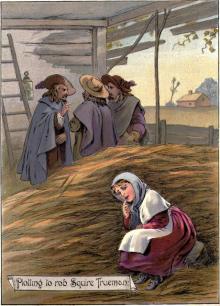 Goody Two-Shoes
Goody Two-Shoes The Pearl Box
The Pearl Box And when you gone...
And when you gone... Stranger At The Other Corner
Stranger At The Other Corner My Young Days
My Young Days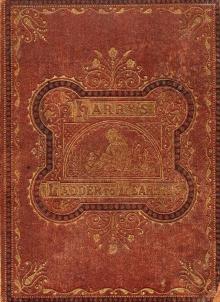 Harry's Ladder to Learning
Harry's Ladder to Learning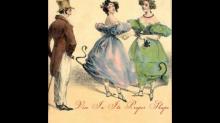 Vice in its Proper Shape
Vice in its Proper Shape_preview.jpg) Promise (the curse)
Promise (the curse)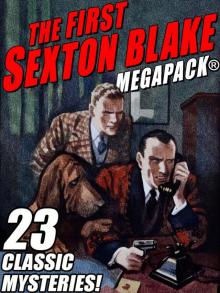 The First Sexton Blake
The First Sexton Blake Golden Moments
Golden Moments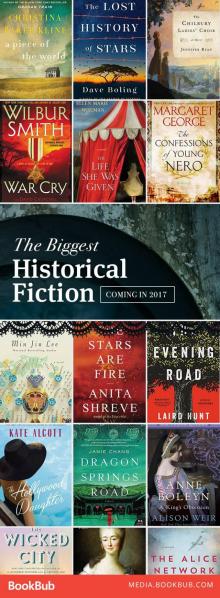 Hildebrand; or, The Days of Queen Elizabeth, An Historic Romance, Vol. 2 of 3
Hildebrand; or, The Days of Queen Elizabeth, An Historic Romance, Vol. 2 of 3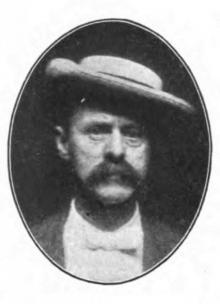 The Ice Queen
The Ice Queen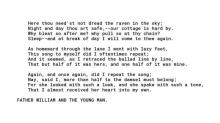 Phebe, the Blackberry Girl
Phebe, the Blackberry Girl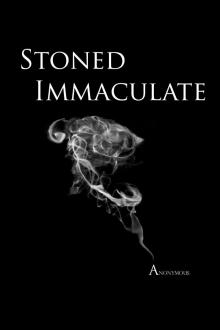 Stoned Immaculate
Stoned Immaculate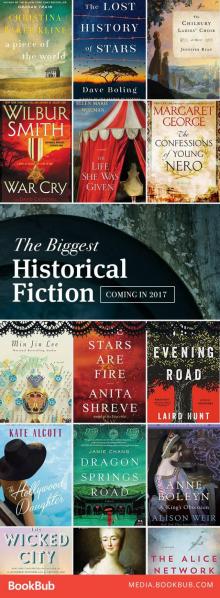 Hildebrand; or, The Days of Queen Elizabeth, An Historic Romance, Vol. 3 of 3
Hildebrand; or, The Days of Queen Elizabeth, An Historic Romance, Vol. 3 of 3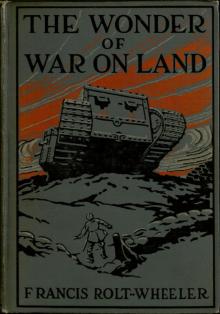 The Wonder of War on Land
The Wonder of War on Land Breaking Bailey
Breaking Bailey The Little Girl Who Was Taught by Experience
The Little Girl Who Was Taught by Experience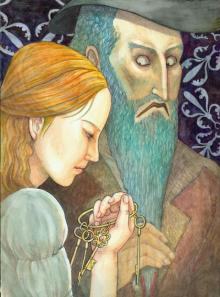 The Popular Story of Blue Beard
The Popular Story of Blue Beard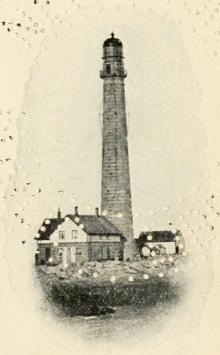 The Life Savers: A story of the United States life-saving service
The Life Savers: A story of the United States life-saving service Eunuchs and Nymphomaniacs
Eunuchs and Nymphomaniacs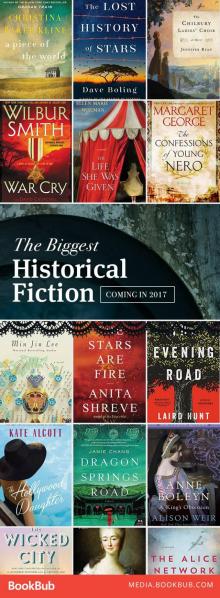 Hildebrand; or, The Days of Queen Elizabeth, An Historic Romance, Vol. 1 of 3
Hildebrand; or, The Days of Queen Elizabeth, An Historic Romance, Vol. 1 of 3 Kitty's Picnic, and Other Stories
Kitty's Picnic, and Other Stories Two Yellow-Birds
Two Yellow-Birds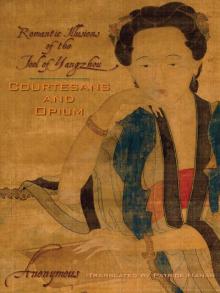 Courtesans and Opium
Courtesans and Opium The Emigrant's Lost Son; or, Life Alone in the Forest
The Emigrant's Lost Son; or, Life Alone in the Forest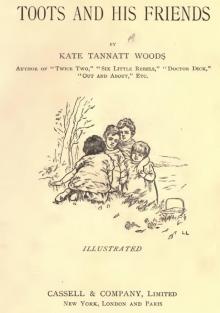 Toots and His Friends
Toots and His Friends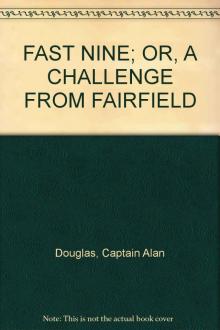 Fast Nine; or, A Challenge from Fairfield
Fast Nine; or, A Challenge from Fairfield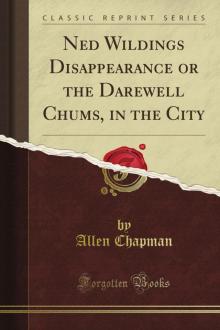 Ned Wilding's Disappearance; or, The Darewell Chums in the City
Ned Wilding's Disappearance; or, The Darewell Chums in the City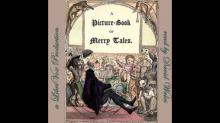 A Picture-book of Merry Tales
A Picture-book of Merry Tales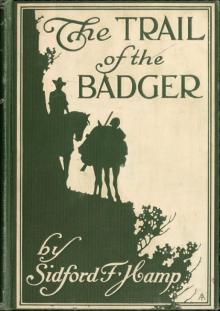 The Trail of The Badger: A Story of the Colorado Border Thirty Years Ago
The Trail of The Badger: A Story of the Colorado Border Thirty Years Ago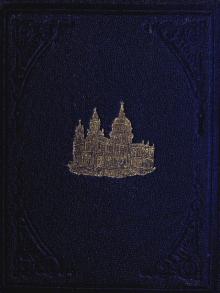 Peter Parley's Visit to London, During the Coronation of Queen Victoria
Peter Parley's Visit to London, During the Coronation of Queen Victoria The Rainbow, After the Thunder-Storm
The Rainbow, After the Thunder-Storm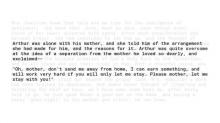 Arthur Hamilton, and His Dog
Arthur Hamilton, and His Dog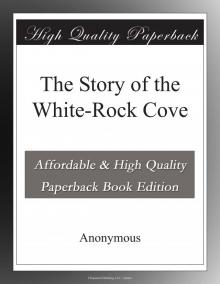 The Story of the White-Rock Cove
The Story of the White-Rock Cove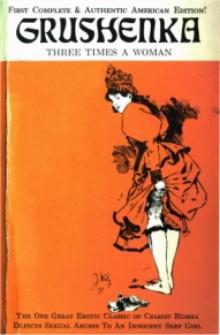 Grushenka. Three Times a Woman
Grushenka. Three Times a Woman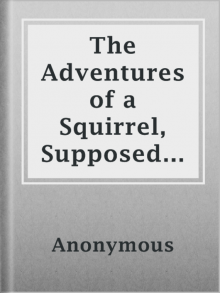 Adventures of a Squirrel, Supposed to be Related by Himself
Adventures of a Squirrel, Supposed to be Related by Himself Falling in Love...Again
Falling in Love...Again The Colossal Camera Calamity
The Colossal Camera Calamity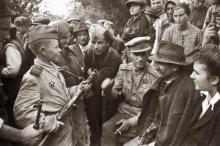 Child of the Regiment
Child of the Regiment Elimination Night
Elimination Night The Kingfisher Secret
The Kingfisher Secret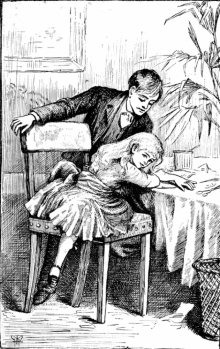 Left to Ourselves; or, John Headley's Promise.
Left to Ourselves; or, John Headley's Promise.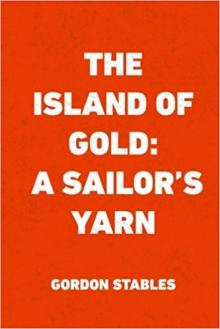 The Island of Gold: A Sailor's Yarn
The Island of Gold: A Sailor's Yarn Adventures of Bobby Orde
Adventures of Bobby Orde Twain, Mark: Selected Obituaries
Twain, Mark: Selected Obituaries When Love Goes Bad
When Love Goes Bad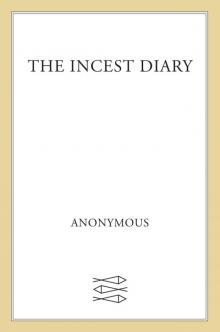 The Incest Diary
The Incest Diary Calling Maggie May
Calling Maggie May The Infidelity Diaries
The Infidelity Diaries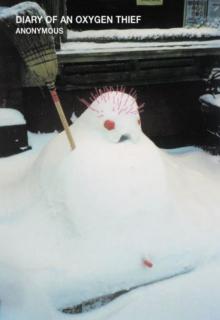 Diary of an Oxygen Thief (The Oxygen Thief Diaries)
Diary of an Oxygen Thief (The Oxygen Thief Diaries) ARABELLA
ARABELLA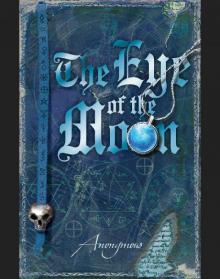 The Eye of the Moon
The Eye of the Moon Dara
Dara THE ALTAR OF VENUS: The Making of a Victorian Rake
THE ALTAR OF VENUS: The Making of a Victorian Rake The Book of Death
The Book of Death The Book of David
The Book of David The Devil's Graveyard
The Devil's Graveyard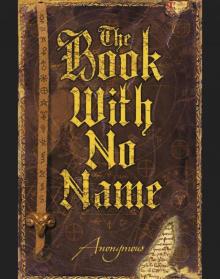 The Book With No Name
The Book With No Name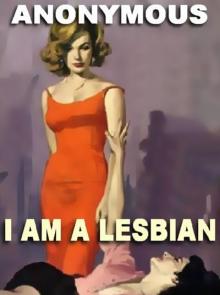 I Am A Lesbian
I Am A Lesbian Njal's Saga
Njal's Saga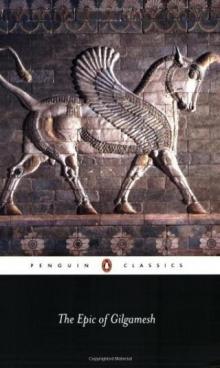 The Epic of Gilgamesh
The Epic of Gilgamesh Darling
Darling Tal, a conversation with an alien
Tal, a conversation with an alien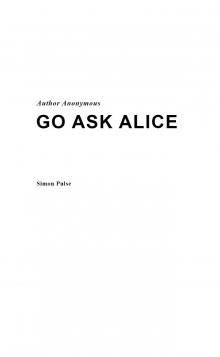 Go Ask Alice
Go Ask Alice Aphrodizzia
Aphrodizzia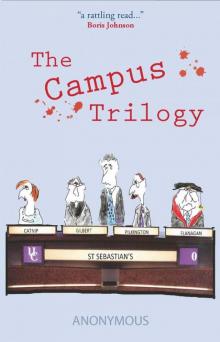 The Campus Trilogy
The Campus Trilogy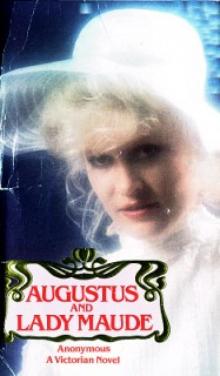 Augustus and Lady Maude
Augustus and Lady Maude Lucy in the Sky
Lucy in the Sky Sight Unseen
Sight Unseen Pleasures and Follies
Pleasures and Follies The Red Mohawk
The Red Mohawk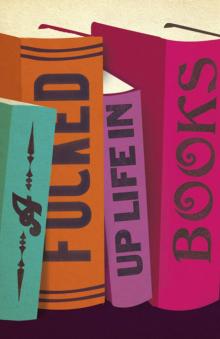 A Fucked Up Life in Books
A Fucked Up Life in Books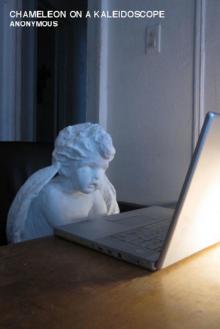 Chameleon On a Kaleidoscope (The Oxygen Thief Diaries)
Chameleon On a Kaleidoscope (The Oxygen Thief Diaries) Astrid Cane
Astrid Cane BEATRICE
BEATRICE The Song of the Cid
The Song of the Cid